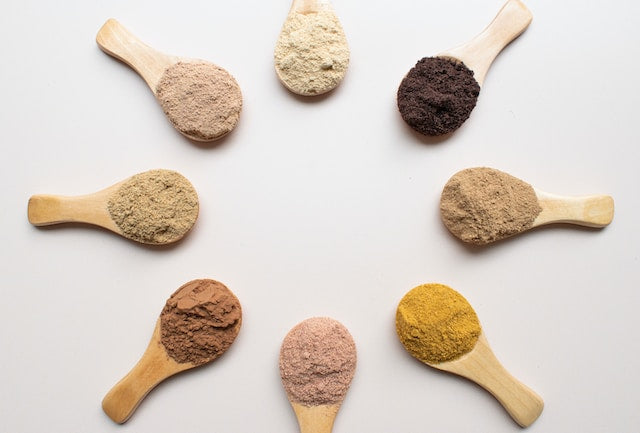Your Cart is Empty
The Ultimate Guide to Hemp Protein Powder (Duplicate)
Hemp Protein Powder: Superfood Hemp seeds have been used medicinally for millennia and ...
READ MORE
The immune system is a complex network of organs, tissues, and cells that work together to protect the body from toxins and harmful pathogens, such as bacteria and viruses. Good nutrition is key to achieving a well-functioning immune system. A diet of foods that are rich in vitamins and minerals is critical to the proper functioning of the immune system. Antioxidants found in certain foods also play a key role in the immune system. Antioxidants can neutralize free radicals in the body, facilitate cell repair, and aid in the production of T-cells, which protect the body from infection (Lobo et al., 2010; Cohen et al., 2017).
When there are excess free radicals and not enough antioxidants in the body, a condition called oxidative stress occurs (Rock et al., 1996). Oxidative stress can cause damage to critical molecule species such as proteins, lipids, and nucleic acids (McCord, 2000). Oxidative stress is associated with various diseases and health conditions such as certain cancers, atherosclerosis, inflammatory conditions, and the process of aging.
One way that hemp protein may support the immune system is by providing the body with a high-quality source of protein, which is essential for the production and function of immune cells. Protein is required for the synthesis of antibodies, which are a form of proteins produced by the immune system to neutralize and eliminate foreign substances from the body.
Hemp protein is also a good source of fiber, which is important for maintaining a healthy digestive system. A healthy digestive system is essential for supporting the immune system, as it helps to eliminate waste and toxins from the body and prevent the growth of harmful bacteria and parasites. Hemp protein is particularly high in soluble fiber, which helps to promote healthy bowel movements and prevent constipation.
In addition to protein and fiber, hemp protein is also a good source of essential fatty acids, including omega-3 and omega-6 fatty acids. These fatty acids are important for maintaining the integrity of cell membranes and supporting immune function. Omega-3 fatty acids, in particular, have been shown to have anti-inflammatory properties, which can help to reduce inflammation in the body and support immune function.
Overall, hemp protein is a good source of nutrients that can support the immune system by providing the body with protein, fiber, and essential fatty acids. It can be a useful addition to a healthy and balanced diet for those looking to support their immune system and maintain overall health and well-being.
Chlorella is full of vitamins, minerals and antioxidants that provide support for the immune system. Chlorella contains nutrients that have shown anti-bacterial, anti-viral, and anti-tumor properties. In clinical studies, chlorella was shown to increase white blood cell levels, which stimulate your immune system and help fight infection. According to Silva et al.,2019, Chlorella supplementation has been shown to improve early inflammatory response and cell-killing activity for abnormal cells. Chlorella is also known to bind to heavy metals and neutralize their harmful effects.
There is some evidence to suggest that rhodiola may have unique immune-supporting properties. For example, some studies have found that rhodiola may help to improve immune function in people with certain medical conditions, such as cancer and HIV. Rhodiola may also have antiviral and antibacterial properties, which could help to protect the body against infections.
As a botanical adaptogen, rhodiola helps the body to respond to physical or psychological stressors. The two most potent ingredients in rhodiola are rosavin and salidroside (Panossian et al.,2019). Salidroside improves anti-inflammatory and antiviral activities in the body to fight off harm. Rosavin on the other hand activates B cells into producing more antibodies.
Chaga has immune-boosting properties and may be able to support the immune system in a number of ways. One of the main ways that chaga is believed to support the immune system is by providing the body with antioxidants. Chaga is rich in a type of antioxidant called melanin, which has been shown to have immune-boosting properties. Melanin is thought to help protect the body against oxidative stress and inflammation, which can weaken the immune system.
Chaga is also believed to have anti-inflammatory properties, which may help to reduce inflammation in the body and support immune function. By reducing inflammation, chaga may be able to help support the immune system and improve overall health and well-being. Some research has also suggested that chaga may have antiviral properties and may be able to help protect the body against viral infections. For example, one study found that chaga extract was able to inhibit the growth of the herpes simplex virus in cell cultures. While more research is needed to confirm these findings, it is possible that chaga may be able to support the immune system by helping to protect the body against viral infections.
Additionally, Beta-D glucans present in chaga have powerful immunomodulating properties. They stimulate cytokines to stimulate the production of white blood cells.
One of the primary ways that sea buckthorn berries are thought to support the immune system is through their high vitamin and mineral content. Sea buckthorn berries are an excellent source of vitamins C (12x the amount of vitamin C as oranges)and E, as well as other antioxidants such as carotenoids and flavonoids. These nutrients can help to protect cells from damage caused by free radicals. Legend has it, it was even used as a secret weapon by the world’s greatest armies. (Learn more here.)
In addition to their antioxidant content, sea buckthorn berries are also a good source of other nutrients that are important for immune system function. For example, they are high in vitamin B6, which helps to regulate the immune system and supports the production of antibodies.
Coconut water is rich in electrolytes, such as potassium, sodium, and magnesium, which are important for maintaining proper fluid balance in the body. When we are dehydrated, our electrolyte levels can become imbalanced, which can weaken the immune system. Coconut water is a natural source of electrolytes and can help replenish them, especially after exercise or when you are sick.
The electrolytes present in coconut water maintain a healthy fluid balance that balances the body’s PH.
Cacao is rich in a group of antioxidants called flavonoids, which have been shown to have immune-boosting properties. These antioxidants can help reduce inflammation and protect cells from damage caused by free radicals, which can weaken the immune system. Cacao is a good source of minerals such as zinc, iron, and magnesium, which are important for immune function. Zinc helps support the immune system and is important for wound healing. Iron is necessary for the production of red blood cells, which carry oxygen to the body's tissues and organs. Magnesium helps regulate the immune system and can help reduce inflammation.
Cacao contains small amounts of the neurotransmitter serotonin, which can help improve mood and reduce stress. In addition, cacao has been shown to increase the production of endorphins, which are feel-good chemicals that can help reduce stress and improve mood. Cacao has also been shown to have anti-inflammatory properties, which may help reduce inflammation and support immune function.
One of the primary ways that monk fruit is thought to support the immune system is through its high antioxidant content. Monk fruit contains a number of antioxidants, including mogrosides, which give the fruit its extreme sweetness (Zone et al.,2019).
There is also some evidence to suggest that monk fruit may have other immune-supporting properties. For example, some studies have found that monk fruit extract may help to improve immune function in people with certain medical conditions, such as diabetes and obesity. Monk fruit may also have antiviral and antibacterial properties, which could help to protect the body against infections.
Moringa contains over 46 antioxidants, which can help protect cells from damage caused by free radicals. One of those 46 antioxidants is quercetin, an antioxidant known to block histamine inflammation response and possibly lower blood pressure. Moringa also contains at least 36 anti-inflammatory agents, which help reduce inflammation and, subsequently, support immune function.
Cinnamon is a popular spice reputed to have various medicinal properties and is rich in antioxidants and anti-inflammatory properties. There is evidence to suggest that cinnamon may also have antimicrobial properties, which means it may help to kill or inhibit the growth of certain types of bacteria and fungi. The antibacterial and antifungal properties of cinnamon can naturally help your immune system fight germs, protect the body from infections and support the immune system.
Cinnamon is also rich in antioxidants, including polyphenols, which may help to reduce oxidative stress and protect against cellular damage.
In conclusion, proper nutrition is essential for maintaining a healthy immune system. By including a variety of nutrient-rich foods in your diet, boosting antioxidant levels, maintaining a healthy weight, supporting gut health, and reducing inflammation, you can help to support your immune system and protect against illness.
The immune system defends the body against disease and infection and is constantly on alert for any signs of external pathogens and invaders.
A well-functioning immune system will detect these harmful elements and fight back to kill or eliminate them from the body.
Click here to try Nutrigazm and get these 10 virus-busting foods in one daily serving.
Nutrigazm - Whole Body Health - 100% Whole Foods
References.

Hemp Protein Powder: Superfood Hemp seeds have been used medicinally for millennia and ...
READ MORE
Consuming immune-boosting foods can have a powerful impact on our body's ability to fig...
READ MORE
Discover the 'Miracle Tree,' Moringa Oleifera—an exceptional source of plant based iron...
READ MORE